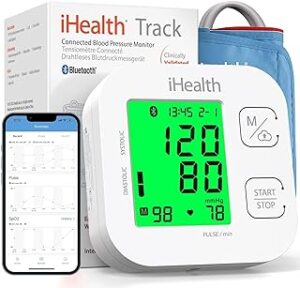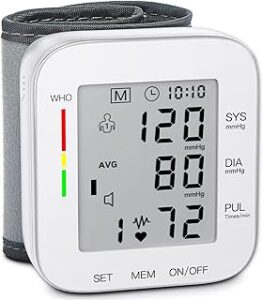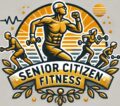From Understanding To Action: High Blood Pressure – The Silent Killer (On A Personal Note)
Introduction: The Hidden Danger of High Blood Pressure
High blood pressure, or hypertension, isn’t just about having a bad day when your numbers are high. It’s like a silent alarm that doesn’t ring but is always ticking in the background. You might feel fine, but beneath the surface, your heart and blood vessels could be under serious strain.
If you’ve ever sat in a doctor’s office and heard words like systolic and diastolic, here’s the deal:
- Systolic pressure (the top number) measures the force of your heart pushing blood out.
- Diastolic pressure (the bottom number) represents the resting period between beats.
The problem? Many people don’t realize they have high blood pressure until it’s too late. It’s called the silent killer because it creeps up unnoticed, increasing the risk of heart disease, stroke, and other life-threatening conditions.
On a personal note, I’m writing this article because I know how devastating hypertension can be. My brother went to sleep one night and never woke up. He had undiagnosed high blood pressure. Nobody saw the warning signs. If this article can help even one person get their blood pressure checked, it will be worth it.
So, let’s break it down—what causes high blood pressure, how you can spot it early, and, most importantly, what you can do to take control of your health.
The Silent Killer: Why High Blood Pressure is So Dangerous
Why Is It Called a Silent Killer?
Unlike some health conditions that come with clear warning signs, high blood pressure doesn’t always cause noticeable symptoms. Many people walk around for years without knowing their blood pressure is dangerously high. Meanwhile, the damage accumulates.

Unchecked hypertension can lead to:
✅ Heart Disease: The heart has to work harder, leading to heart failure or a heart attack.
✅ Stroke: High blood pressure weakens arteries, increasing the chance of a rupture or blockage in the brain.
✅ Kidney Damage: The kidneys rely on proper blood flow—hypertension can cause failure over time.
✅ Vision Loss: High pressure can damage blood vessels in the eyes, leading to blurred vision or blindness.
✅ Cognitive Issues: Studies link hypertension to memory loss and an increased risk of dementia.
Early Warning Signs You Shouldn’t Ignore
While many people experience no symptoms at all, some early warning signs may indicate trouble:
- Frequent headaches
- Dizziness or fainting
- Blurred vision
- Chest pain or shortness of breath
- Fatigue or confusion
🚨 If you ever experience chest pain, severe headaches, or difficulty breathing, seek medical help immediately. These could be signs of a hypertensive crisis.
Causes and Risk Factors of High Blood Pressure
What Causes High Blood Pressure?
There’s no single cause, but several factors contribute to hypertension:
1. Lifestyle Factors (Things You Can Control)
🚫 Too much salt: High sodium intake leads to water retention, increasing blood pressure.
🚫 Lack of exercise: A sedentary lifestyle weakens the heart, making it harder to pump blood.
🚫 Poor diet choices: Processed foods, excess sugar, and unhealthy fats contribute to weight gain and hypertension.
🚫 Smoking and alcohol: Both cause blood vessel damage and spikes in blood pressure.
🚫 Stress: Chronic stress raises cortisol levels, keeping blood pressure high.
2. Non-Modifiable Risk Factors (Things You Can’t Control)
❌ Age: Blood pressure tends to rise as you get older.
❌ Genetics: A family history of hypertension increases your risk.
❌ Medical conditions: Diabetes, kidney disease, and sleep apnea are linked to high blood pressure.
📌 Bottom Line: You can’t change your age or genetics, but you CAN modify your lifestyle to reduce your risk.

How to Monitor and Control High Blood Pressure
1. Get Regular Blood Pressure Checks
Checking your blood pressure is the only way to know your numbers. You can do this:
✔️ At your doctor’s office
✔️ At a pharmacy with a free blood pressure station
✔️ At home with a digital blood pressure monitor
📊 Normal blood pressure levels by age:
Age GroupNormal BP (mmHg)Elevated BP (mmHg)Hypertension (mmHg)18-3990/60 – 120/80120/80 – 129/80130/80 or higher40-5990/60 – 120/80120/80 – 129/80130/80 or higher60+90/60 – 120/80120/80 – 129/80130/80 or higher
🚨 If your BP is consistently 140/90 or higher, you need to take action!
Managing and Preventing High Blood Pressure
1. Lifestyle Changes That Lower Blood Pressure
✅ Follow the DASH Diet: Eat more fruits, veggies, whole grains, and lean protein.
✅ Reduce Salt Intake: Aim for less than 2,300 mg of sodium per day (about one teaspoon).
✅ Stay Active: 30 minutes of exercise (walking, cycling, swimming) can make a huge difference.
✅ Maintain a Healthy Weight: Losing even 5-10% of body weight lowers BP.
✅ Limit Alcohol and Quit Smoking: Your heart and blood vessels will thank you.
2. Medications for High Blood Pressure
If lifestyle changes aren’t enough, doctors may prescribe medications such as:
💊 Diuretics: Help your body eliminate excess salt and water.
💊 Beta-blockers: Reduce heart rate and workload.
💊 ACE inhibitors: Relax blood vessels for smoother circulation.
💡 NEVER stop taking prescribed BP meds without consulting your doctor.

Frequently Asked Questions About High Blood Pressure
1. What is the number one food that causes high blood pressure?
Excess sodium (salt) is the biggest culprit. Processed foods, fast food, canned soups, and salty snacks raise blood pressure significantly.
2. What should I do if my BP is 140/90?
- Monitor it regularly.
- Make immediate lifestyle changes (less salt, more exercise).
- Talk to a doctor about whether medication is necessary.
3. What is the fastest way to lower blood pressure?
- Deep breathing and meditation lower stress-related spikes.
- Drink beet juice – research shows it can lower BP within hours.
- Reduce salt intake immediately.
4. Can high blood pressure kill you in your sleep?
Yes. Uncontrolled hypertension increases the risk of stroke or heart failure overnight. This is why regular BP monitoring is crucial.
My brother went to sleep one night and never woke up.
Final Thoughts: Take Control of Your Blood Pressure
High blood pressure doesn’t have to be a death sentence—but ignoring it could be. The best defense is awareness, prevention, and proactive management.
🔹 Know your numbers.
🔹 Make healthy lifestyle changes.
🔹 Take action before it’s too late.
I lost my brother to hypertension. Please, don’t ignore your health. Get your blood pressure checked, encourage your loved ones to do the same, and take steps to protect your heart.
💬 Have you had a blood pressure check recently? Drop a comment below and share your experience! 💙

My name is Larry, and I’d like to thank you for visiting Senior Citizens Fitness. I’m so passionate about staying fit in my later years. I hope you found some useful information here. Thanks again, and please subscribe and leave comments.
If You are a Senior like me and passionate about something and want to blog about it and possibly earn a decent income. Check this out.


